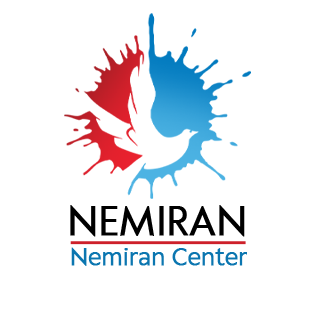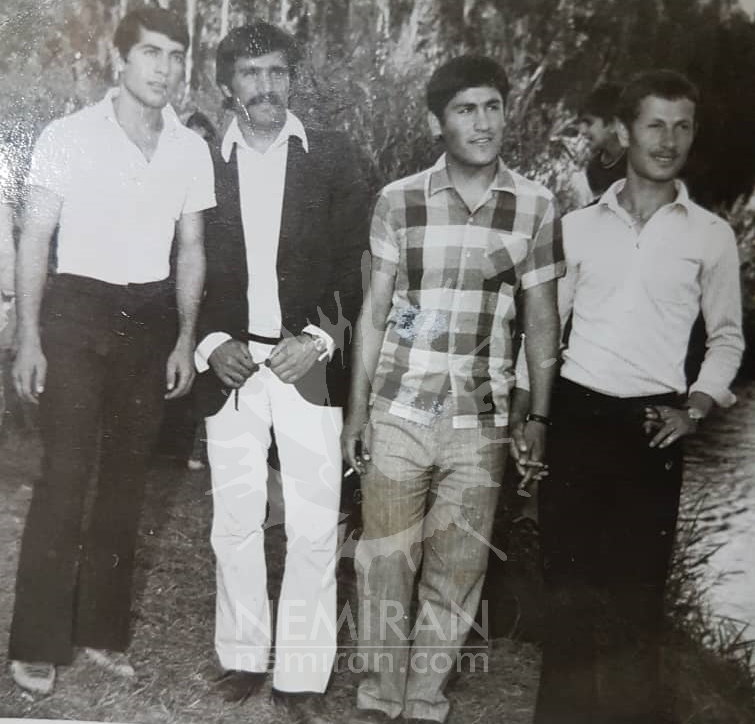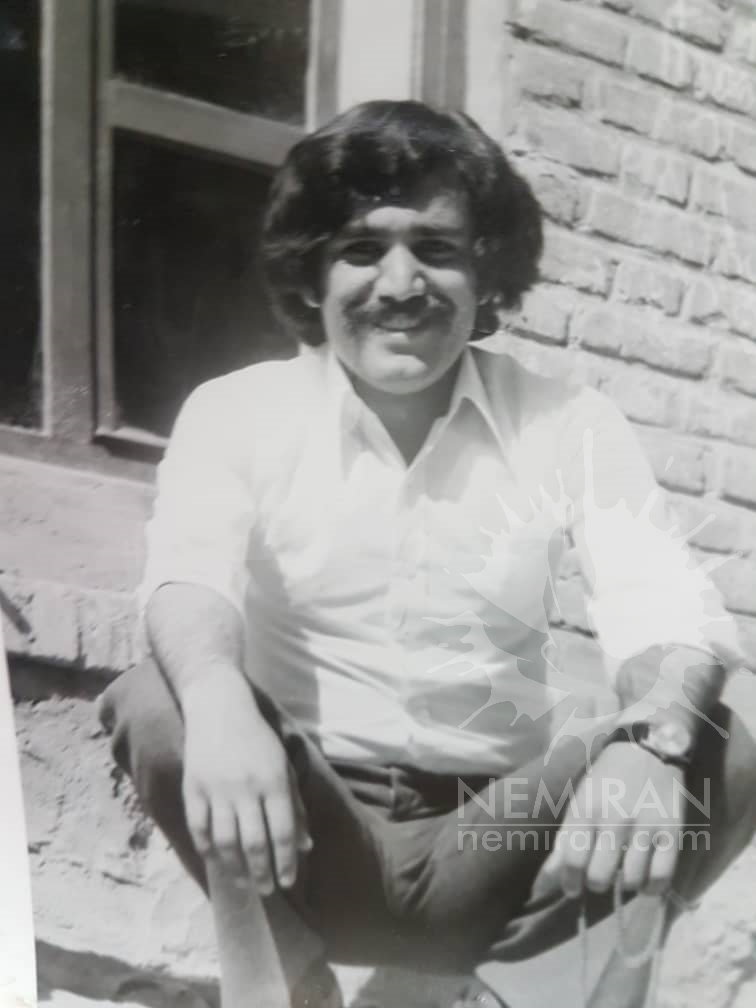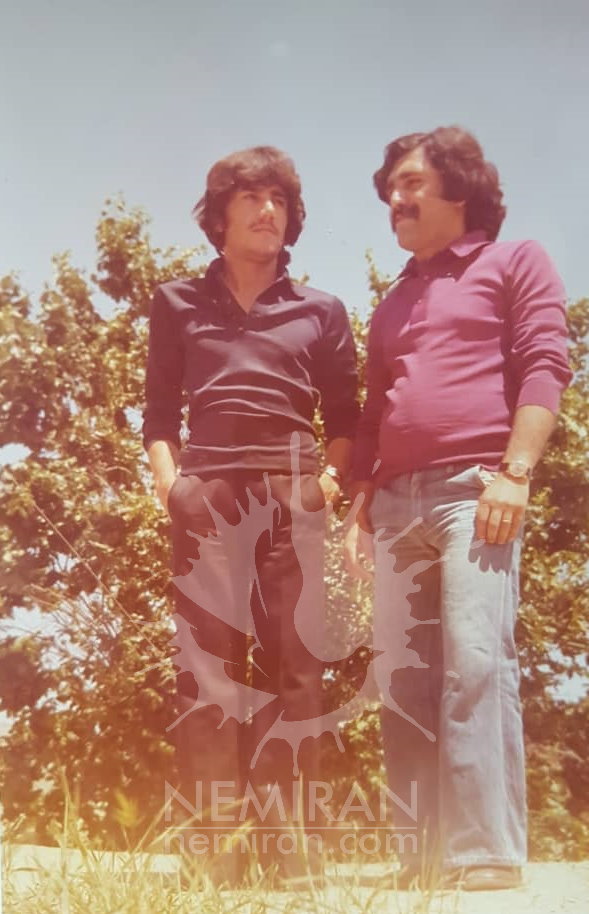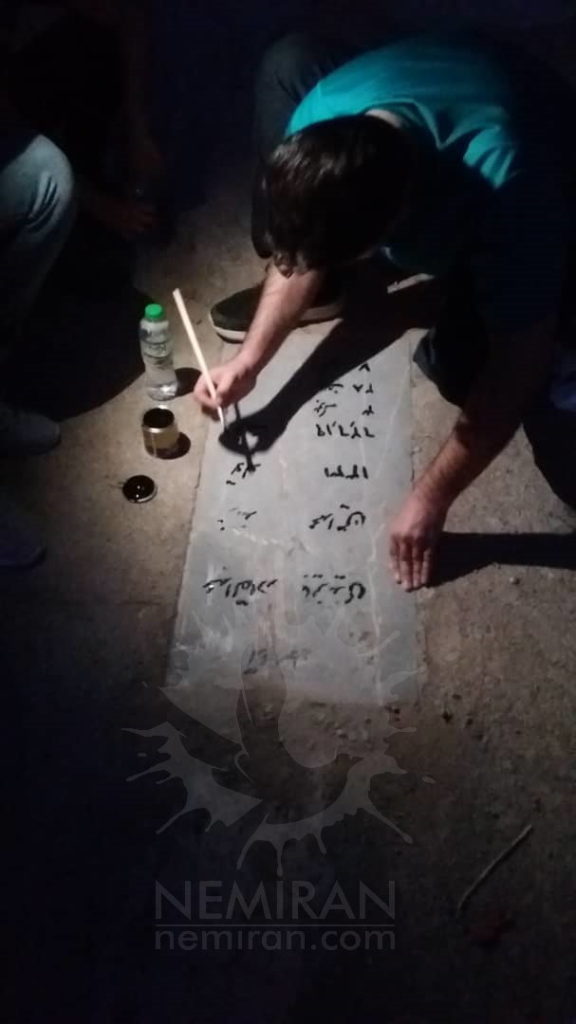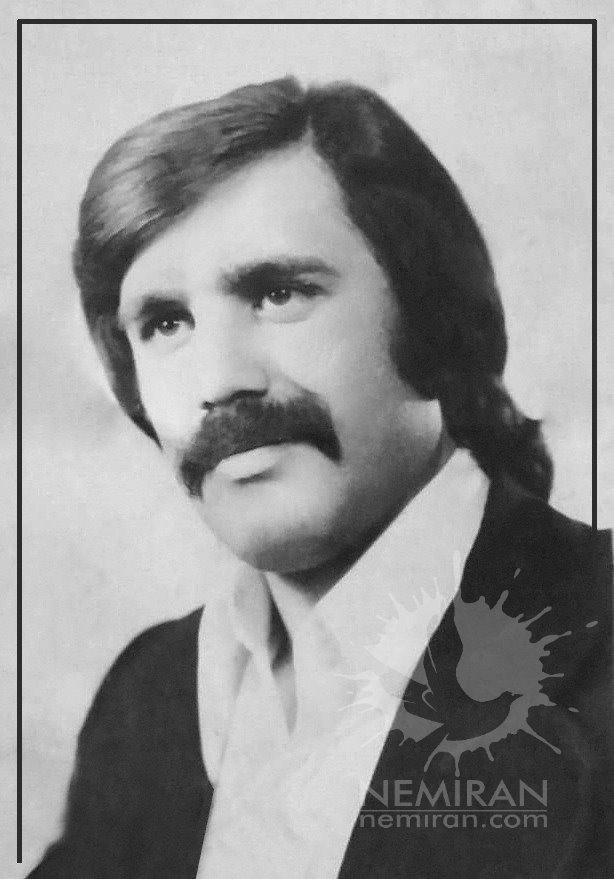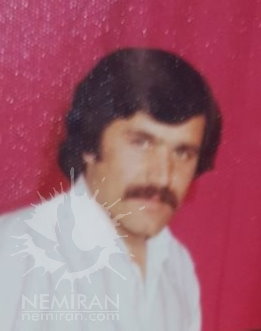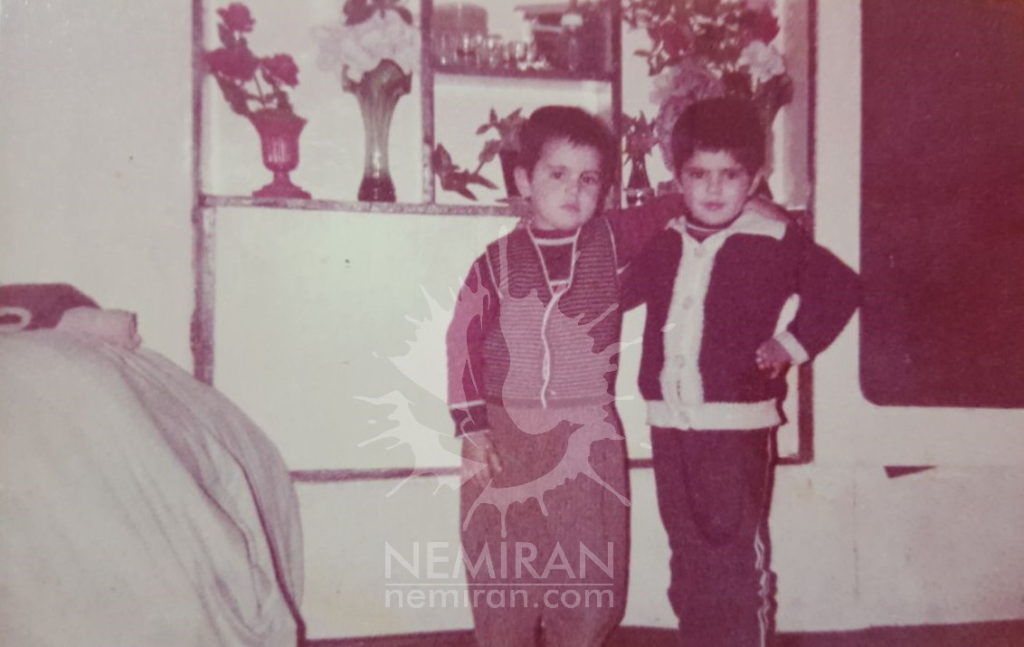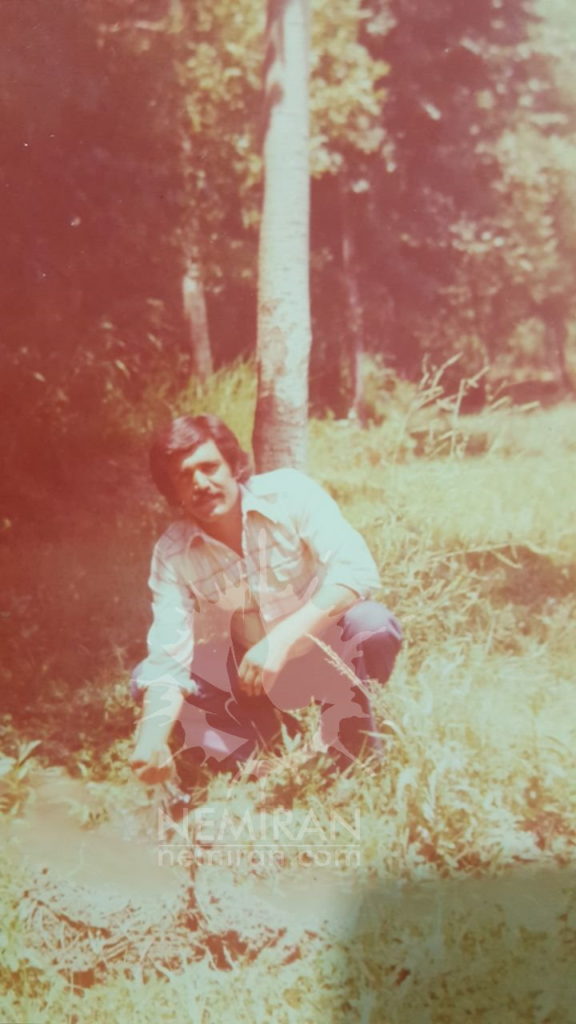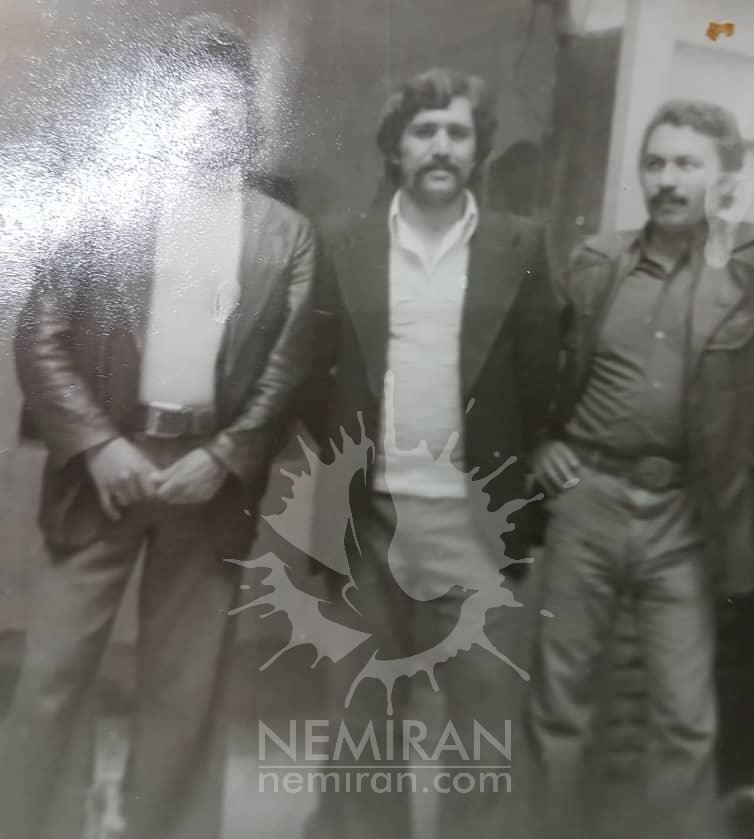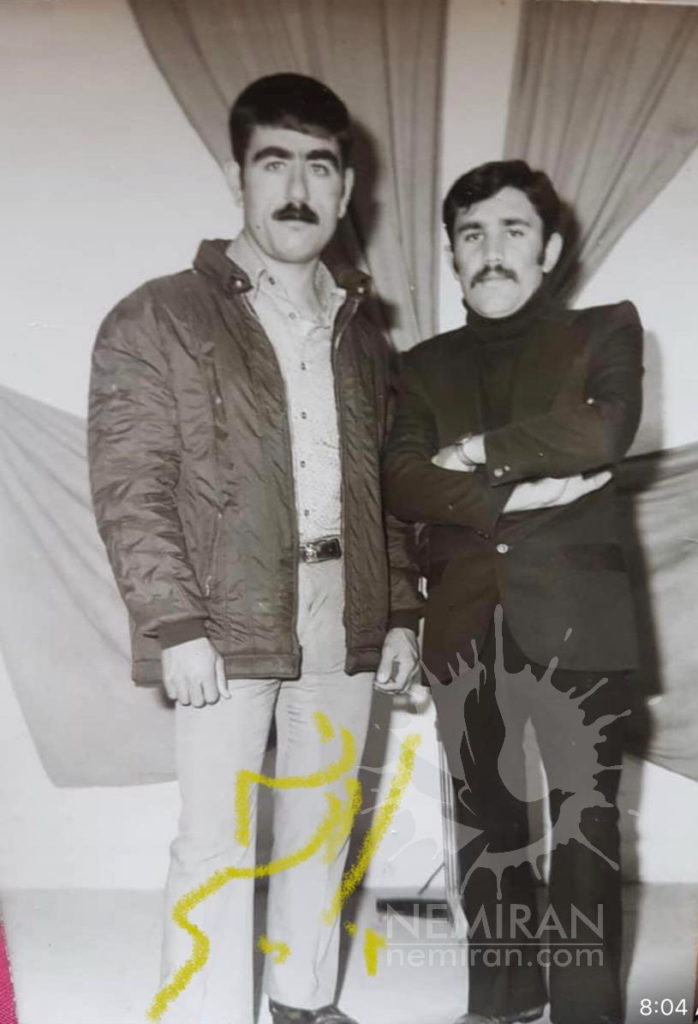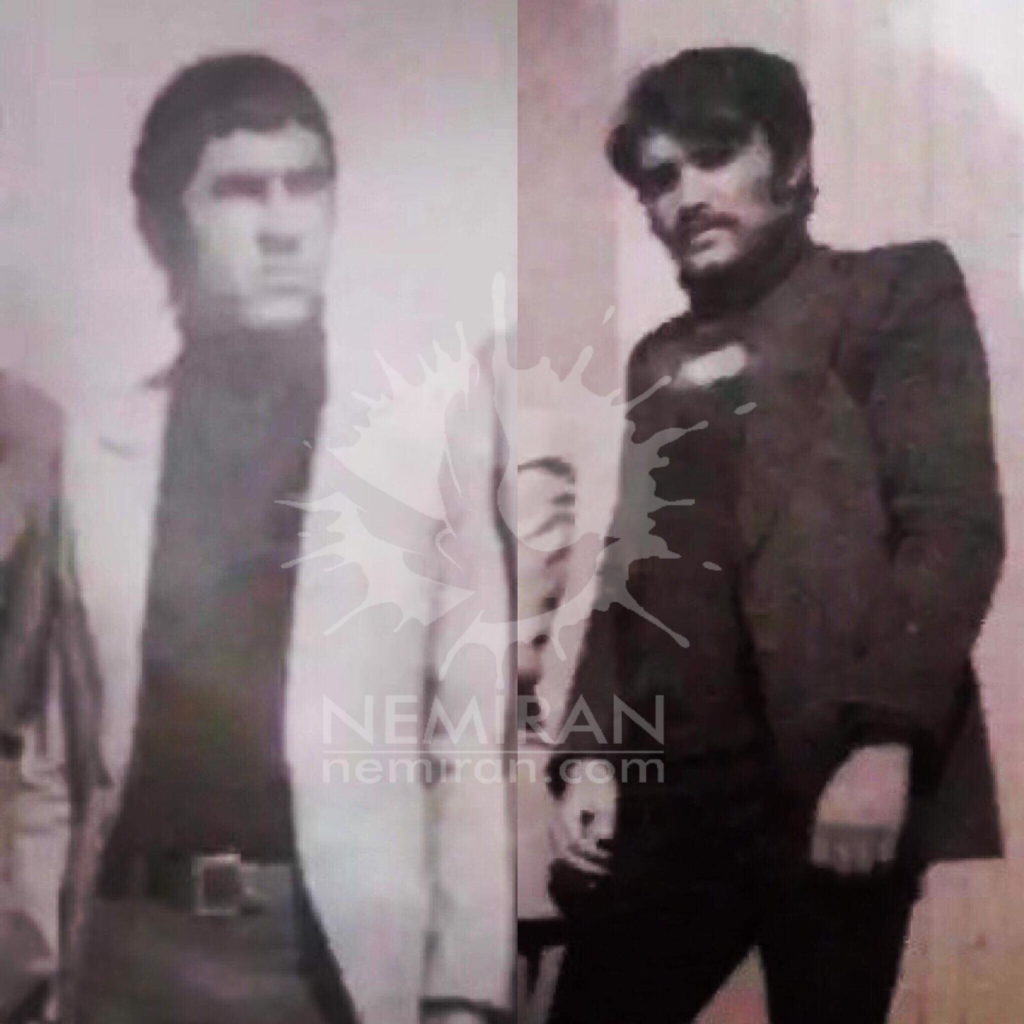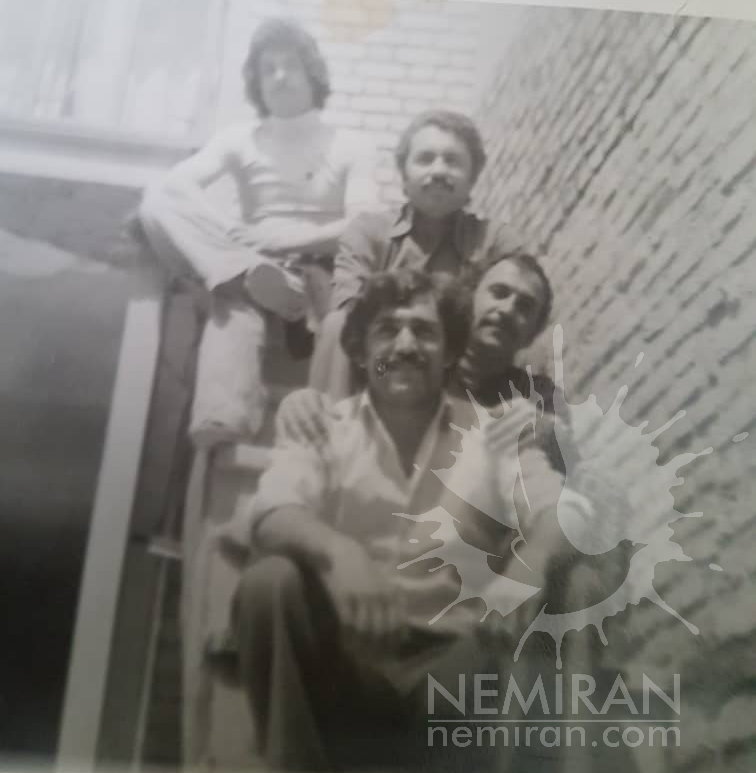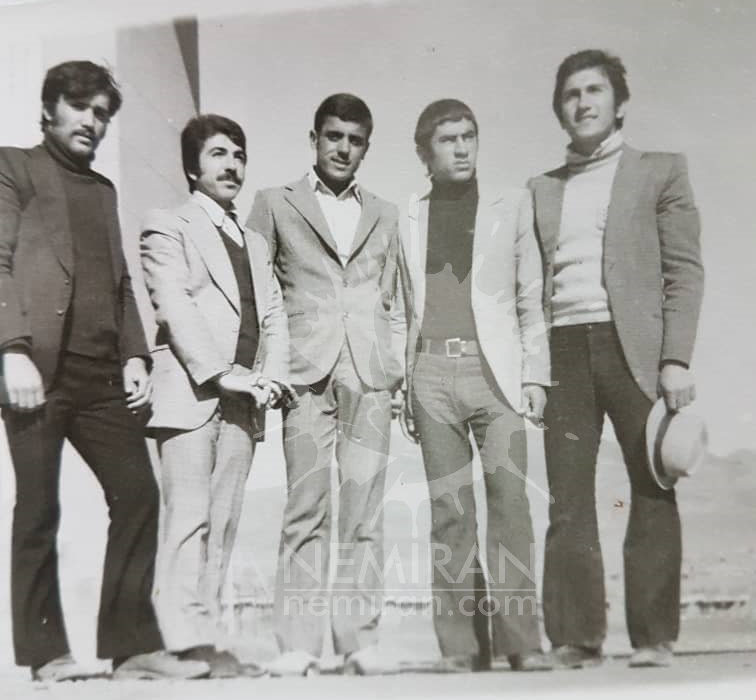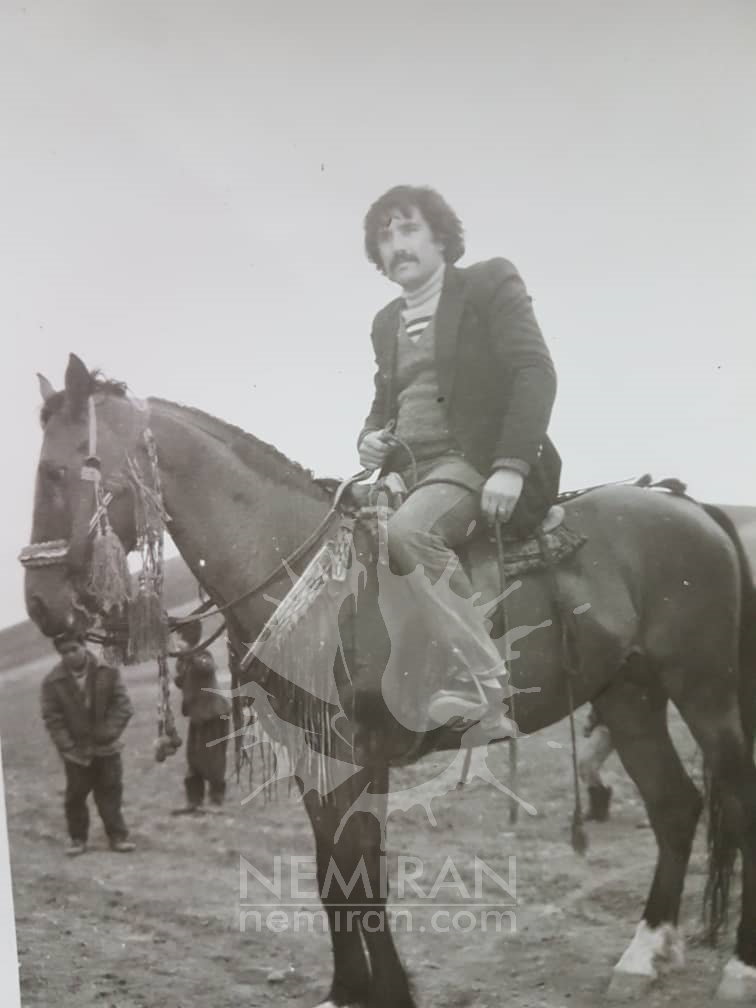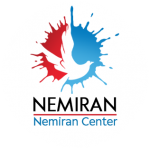It was the end of the winter 1982 to 1983. Little by little, the signs of spring were appearing. People were happy with the end of the cold and harsh winter, preparing themselves for a lush and refreshing spring. Finally spring arrived. The spring of 1983, a year whose memory forever torments the hearts of Mahabad and its people like a dagger and reminds them of a wound that still hurts the families of the victims of the crimes of the Islamic Republic.
Of course, I must say that in the spring of Kurdistan, rain of cannons and bullets and fear of a brutal and murderous regime has always been a guest in the houses of the people of Kurdistan instead of flowers and blossoms. Night owls, bats and leeches of this Islamic government are always lurking in the hunt for Kurdish deer and gazelles (Kurdish youth).

With the arrival of spring, the night owls came to life. Sarollah’s patrols were so busy finding prey that it seems that these vampires, thirsty for the blood of the youth of this land, could not find prey throughout the winter. Terror dominated Mahabad, youths and teenagers were arrested and taken on patrols to their slaughterhouses and dungeons.
Only a few days had passed since that damned Nowruz. I returned home and had dinner with my family. After dinner, we each took refuge in our own corner and were overwhelmed by our thoughts. A terrifying silence had filled the house. It was as if an accident, an adventure was going to happen. It was time to go to bed and we each lay on the bed in the corners of our pillows.
My mind was busy with the situation and the atmosphere in the city. The day before, many innocent youths were arrested on the streets for no reason. I was immersed in these thoughts, I gradually fell asleep. I fell asleep on that dark night when the moon and stars had hidden behind the black clouds. I was asleep when I suddenly woke up with a loud voice. I opened my eyes, it was my mother crying and begging. At midnight that night, the ignorant and superstitious worshipers entered our house through the roof.
My mother, who was sleeping in the front room, noticed the presence of the executioners and shouted in horror, threatening to force her to remain silent. They asked for my room, two of these green dressed came to my bed and called my name: Rahim? I was a little shocked and said yes, I am Rahim. Stand up, put on your clothes. The two mercenary green-clad men took my hand and pulled me out of bed. I saw my parents crying and begging in the corner of the room to stop me being pushed forward by these vampire executioners. But it was useless. They received no answer except aggression and threats. I wore my clothes. I thought for a moment about escaping. I waited for an opportunity and in a moment I let go of them. I ran to the yard. The yard and the roof were full of these greens-clads and the mercenaries who were with them. They had aimed their guns at me. I had no choice but to surrender. We left the house. I saw a Toyota full of guards and a patrol car with several people inside in the street. I knew one of them, he was our neighbor. They quickly blindfolded me and threw me into the patrol car. The patrol car moved after a few moments. They asked the person I had seen, our neighbor, where he was. He told them the address, which shocked me. It was the address of my brother Abdul Qadir.
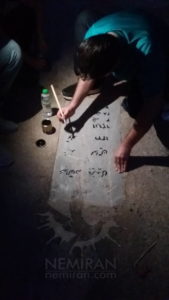
Abdul Qader Bayazidi was a teacher who served the children of Kurdistan in the villages of Bukan (Akhtatar) and in the city of Mahabad. He was born in 1331 Iranian Calendar (1952) into a middle-class and hardworking family. He was the eldest child in the family and was dear to his father, mother, sister, and brothers. After graduating from high school, he was employed by the ministry of education and served in deprived areas of Kurdistan. He got married before the notorious Islamic Revolution and his wife gave birth to three sons. He was not only a kind and compassionate father to his children, but also a kind husband and an extremely devoted brother to his sister and his brothers. According to his friends, he was an honest, loving and comradely friend in the truest sense of the word.
In the early spring of 1983, the clerical regime’s agents raided his house in the middle of the night and arrested him in front of his wife and young children. His family had no information about Abdul Qadir and his brother Rahim for several months. Most of his fellow inmates were transferred to a public ward, but he was still held in solitary confinement and tortured because he did not confess to what he had not done. Abdul Qadir was the last person to speak at the televised confession on Mahabad TV. All he said was that he was just a sympathizer. At the same place where the confession was broadcasted, the interrogator and the torturer (Qassem Salakh) threatened to torture and to kill him saying: “I will cut off your head”, because he did not confess as they asked him to do.
He was taken to solitary confinement again. Despite his heart condition and open heart surgery, the regime’s torturers continued to torture him without mercy, regardless of his physical condition. He, like other prisoners and victims of the regime’s crimes, was tried by the religious ruler and full-fledged representative of the Khomeini, the criminal and bloodthirsty Khalkhali. A few minute trial in which innocent prisoners were set on an empty tin, not even allowed to sit down on a chair. Khalkhali, the executioner and psychopath, issued the death sentence after reading the forced confessions of the prisoner. Prisoners were not allowed to speak or defend themselves.
Abdul Qadir’s family, like the families of other innocent prisoners, went to the prison gate every day to ask how their children were doing. A large number of prisoners were transferred to Urmia Prison, including Abdul Qadir. His family succeeded in meeting him by presenting a letter they had received from his attending doctor(Dr. Sheikh) in Tehran. Prison authorities allowed him a face-to-face meeting for a few minutes. Traces of brutal torture could be seen all over his body.
During the meeting, he gave a letter to his mother signed by other innocent victims and prisoners in their own handwriting or through fingerprints. They acknowledged that they were innocent and every confession they made was a subject of torture and had no credibility. He sent this important document out of prison.
A young man who turned out to be a guard at Urmia Prison came to the house of Abdul Qadir’s father, on the night that innocent prisoners were transferred from Urmia Prison to Tabriz without their knowledge. He gave them a one-line letter and left quickly. The letter was written by Abdul Qadir: “We were transferred to Tabriz, they want to carry out the death sentence, come to Tabriz immediately”.
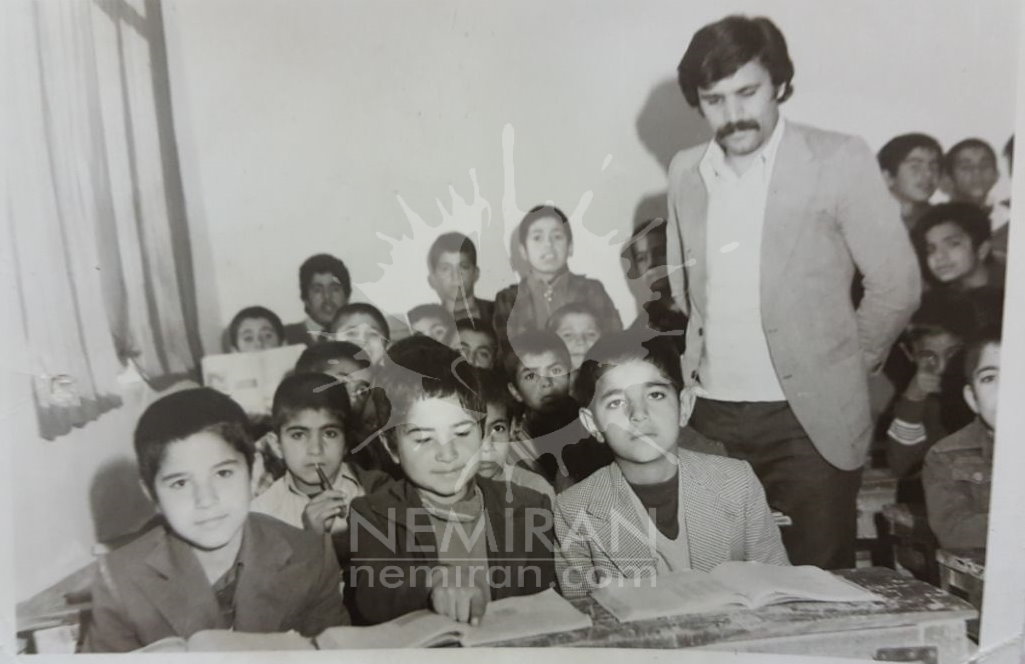
That night, Abdul Qadir’s family informed the other families of the prisoners about the incident. Early in the morning, all the families gathered in front of the Mahabad Prison. Prison management handed over the names of those who were transferred to Tabriz and give them to the families. On the same day, the families of the prisoners went to Tabriz and gathered in front of the prison gates. Only one person had not been executed, Mrs. xxx (the name of this lady is protected by the Nemiran website). Her family got an appointment, the other families were told to go to Wadi Rahmat Cemetery in Tabriz.
The families protested and stoned the prison gate. Sarollah mercenaries intervened and arrested and inspected everybody. Then they held three persons and told the families that if they did not go, they would execute them as well. No one left. No one believed that his innocent child had been executed so easily. The families gathered in a tea house in front of the prison. Someone in military uniform came among them and said in Kurdish (from Sanandaj) that he wanted to talk to only two people. Abdul Qadir’s mother and brother took the initiative and went to a corner with him. The person swore that he himself witnessed that 33 prisoners were taken to the execution place.
He also said that a young man was going ahead and sang the anthem Ay Raqib (Kurdish National Anthem). The description shows that it was Najat Mamle. He also said that a person who had undergone heart surgery was severely tortured and could not walk. Others were holding his hands, it was Abdul Qader Bayazidi. A tall person was among them, it was Qader Kake Memi. The witness said in the end that he could no longer tolerate this situation. He said: “This is the last time you see me and I will join the Democratic Party of Iranian Kurdistan”.
The testimony of this person and the signs he gave proves that these persons had been executed the night before. The families stayed overnight on the bus. In the morning, they returned to the front gate of the prison and demanded the release of the three arrested men. They were released after making a commitment. One member of every victim’s family was allowed to enter the prison to retrieve their loved ones’ belongings.
At 1 o’clock in the afternoon, the families went to Wadi Rahmat Cemetery in Tabriz. No one believed that these graves were the graves of their loved ones.
It should be noted that after the execution of these innocent people, the regime did not stop harassing the bereaved families of these victims and did not even allow them to hold funerals (by threatening and intimidating). 37 years after this crime, the clerical regime is still trying to erase the traces of its crimes. The regime hopes that the tombstones will be disintegrated and the names and symbols of these loved ones will vanish and the families are not allowed to replace or repair the tombstones.
We neither forgive nor forget.
This article is a short a description of what was done by the barbaric regime of the Islamic Republic to the family of Abdul Qader Bayazidi and also the families of other innocent victims of Mahabad in 1983. In many cases, the words fail to express the level of violence and brutality of this regime towards these innocent victims and their families. But silence must be broken in order to reveal the horrible dimensions of the crime of the Islamic Republic. It must be said, it must be written down.
Author: Khabat Bayazidi, son of Abdul Qader Bayazidi
Some memorial photos of Abdul Qader Bayazidi
